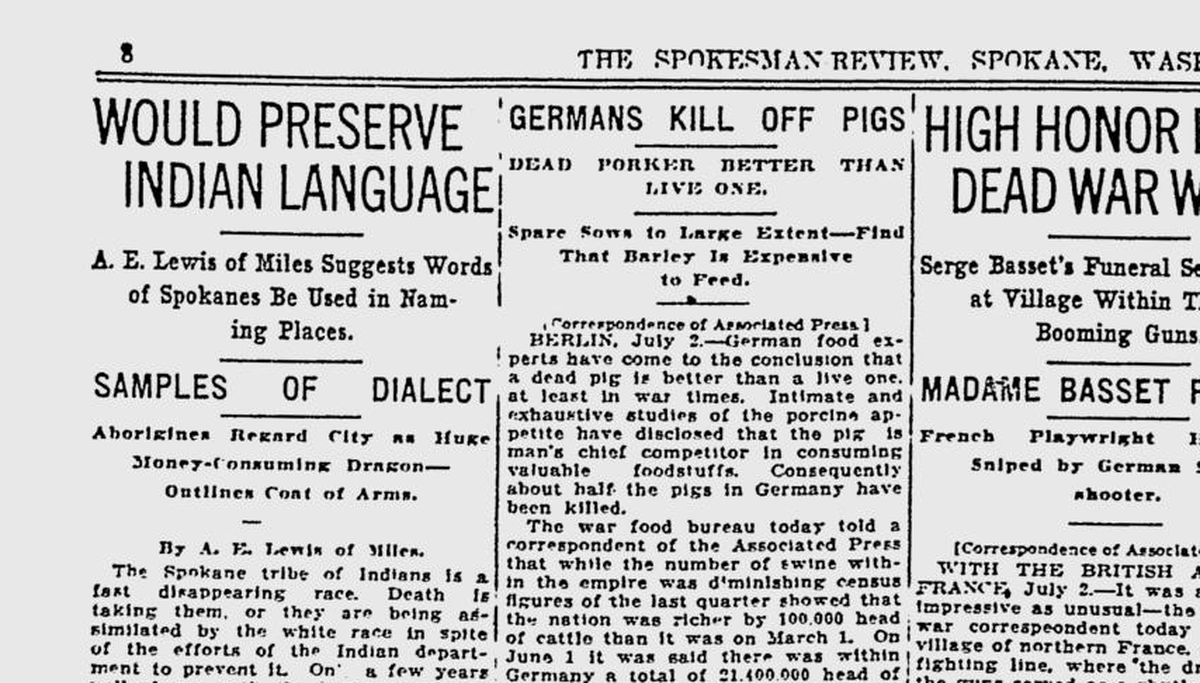100 years ago in Spokane: Man who traded with Spokane Tribe says tribal language should be saved before its too late

A.E. Lewis of Miles, Wash., wrote an article advocating the preservation of the “Spokane tongue,” meaning the Spokane tribal language.
He said that death and assimilation was making the tribe a “disappearing race.” Lewis believed that “the Spokane tongue should be preserved as much as possible by applying it to names of towns, mines, parks and other public places, roads, bridges and lakes.”
Lewis listed a number of words he had learned from “constant business association with members of the tribe for 12 years.” Among the words he listed were “kar-toom (big),” and “sta-pay (rain).”
He also said tribal members consider Spokane “the great dragon whose principal diet is o-lo-lim.” O-lo-lim, Lewis said, meant metal, but also was applied to money “especially to dollars.”
From the fishing beat: The Spokesman-Review printed a whimsical fish story that was supposedly true.
It took place at Newman Lake. Three “mermaids” (girl swimmers) were sunning on some partially submerged rocks. One of the girls had a cut on her toe. A bass came swimming around and the girls suggested “wiggling their toes at him.” The bass responded by biting the cut toe. Much hilarity ensued.
The next day, some members of their party suggested catching the bass by attaching a hook and line to the girl’s toe. The bass came back around and was hooked solid, but the fishing line got caught on the girl’s leg and pulled her leg violently. The line broke. More hilarity ensued.
They try again, with stronger line. “The fish comes back and is caught — we eat the bass.”
The editors felt the need to say they could not vouch for this story’s veracity.